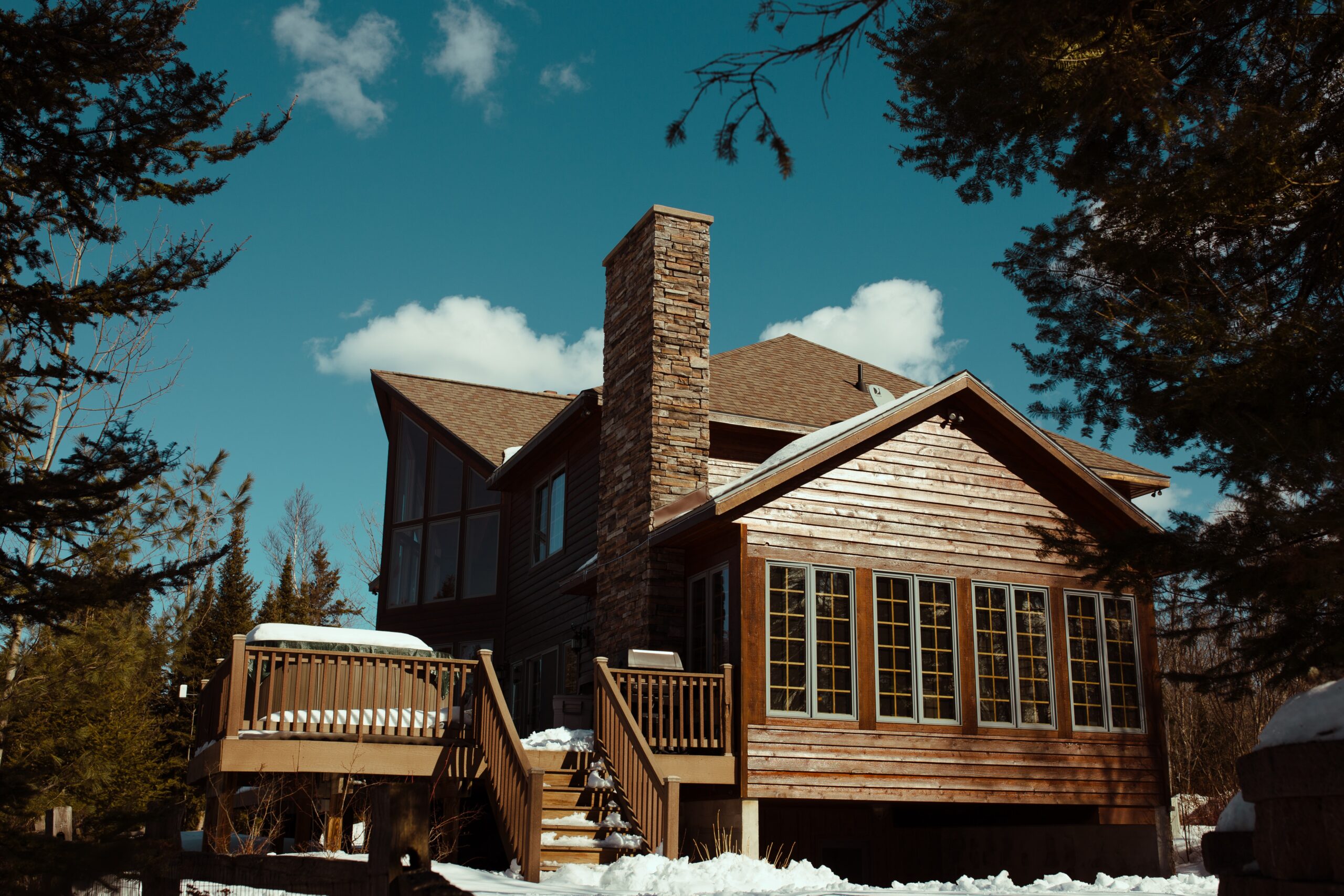How To Invest In STR Real Estate (AirBnb)
When it comes to real estate investing, it can become confusing as to the best way to invest plus which asset class to choose from.
I started out in multifamily real estate syndications as it was one of the more popular asset classes at the time. But the more I learned, the more I realized other ways to diversify especially when it comes to cash flow.
In some cases, short term rentals (daily or weekly) can provide even better cash flow compared to long term rentals.
When evaluating short-term rentals (STRs) and long-term rentals (LTRs) side by side, STRs can often net 2x more vs LTRs.
Not only does this make short term rental property a great opportunity for the everyday investor, but also for larger investment groups such as funds.
Maybe this is why we’re seeing trends, such as in New York, where there’s more Airbnb listings than apartments to rent.
In this article, we’ll discuss:
- how short-term rental property work
- difference between short and long-term rentals
- what to know before diving into a short-term rental investment
Don’t Miss Any Updates. Each week I’ll send you advice on how to reach financial independence with passive income from real estate.
Sign up for my newsletterWhat is a Short Term Rental (STR)?
Click HERE to learn more about our latest STR (AirBnb) Fund II
A property is considered to be a short-term rental (STR) if rented on average for less than seven days at a time.
STRs, also known as vacation rentals, are usually rented out for vacation or business trips.
And with the advent of online platforms such as Airbnb/VRBO, it’s never been easier for virtually anyone with a vacation/second home or rental property to use as a short-term rental.
Many times a STR property owner can make more money renting for short periods vs long-term rentals as they can:
- charge more
- turn the property over quicker to more renters
Related article: Short-Term Rental Tax Strategy For High-Income Earners
STR vs LTR Investing
The most common ways to get started investing in real estate are with long-term and short-term rental properties. Here’s a list of some of the differences and similarities between the two.
#1. Income stream
If you want more predictable income, then long term rentals maybe your best option. They can achieve this due to the fact that most leases are usually signed for one year with a fixed rental amount.
If you own a duplex that rents both units for $1000 per month, then you can expect $24k in gross annual income. By knowing the potential income, it makes it easier for landlords to budget and qualify for financing.
On the flip side, the short term rental market typically have a more inconsistent income stream affected by:
- nearby competition (hotels, other rental companies)
- seasonality
- average guest stays
- average daily rate (ADR)
On the other hand, the short term rental industry occasionally have a higher income stream vs long-term rentals. STR data research firm AirDNA, noted the average annual revenue earned by STRs listed full time reached a record level of $56,000 in 2021.
#2. Financing
Obtaining financing from lenders is different when considering LTRs vs STRs.
As previously mentioned, LTRs demonstrate a more consistent income stream with longer leases thus making them easier to finance vs a STR.
Also, they’re able to get more competitive interest rates when it comes to traditional financing options with a lower down payment.
Occasionally it can be difficult to finance STRs with traditional or conventional loans due to restrictive lending requirements.
Three types of STR loans available according to AirDNA are:
- Asset-based loans based on actual or potential income from an STR instead of a borrower’s income and debt-to-income ratio
- Cash-out refinance of a primary residence or another investment property to raise funds to purchase an STR
- Home equity lines of credit (HELOCs) that access accrued equity in a primary residence to use toward the purchase of an STR
#3. Tenant turnover
With LTRs, landlords can expect a much lower tenant turnover rate vs STRs due to longer leases. Occasionally getting stuck with difficult tenants could be a problem as they might:
- cause major property damage (which exceeds deposit amount)
- refuse to pay rent (hard to evict in certain states)
Short term rental homes have a higher turnover rate (average length of stay between 5-7 nights) vs LTRs. Most of the time a credit card is obtained to pay for the stay plus covering any damages acquired during the stay.
Because STRs focus on temporary tenants, the owners must constantly market the property to generate a consistent income stream.
Click HERE to learn more about our latest STR (AirBnb) Fund II
#4. Exit strategies
A long-term rental investor wanting to sell with a tenant in place is limited to selling to another LTR investor, unless the tenant can be convinced to leave.
Occasionally, attempting to sell a home with a tenant in place can be a drawback.
Cap rates for single family homes hit an all-time low in Q4 2021. Cap rates tend to decline (aka cap rate compression) when prices increase relative to the net operating income (NOI) generated. This means real estate investors are willing to pay MORE for less (income).
However, a short-term rental investor is able to choose the most profitable exit strategy when wanting to sell.
STR property owners can more quickly respond to changing market conditions as they’re not tied up with long-term lease tenants.
Because of this, they’re able to sell to other investors looking for either STRs, LTRs or an owner-occupant looking for a primary home.
#5. Lifestyle investing
If you’re wanting to wanting to enjoy your income property, then long-term rentals may not be your best option.
They’re not typically located in high demand destination towns (i.e., San Diego) plus they’re occupied with long-term tenants. Because of this, you’re not able to stay at these properties.
Yes, they will provide income but aren’t available for personal use.
On the other hand, short-term rentals can be used at any time and tend to be located in areas such as:
- ski resorts
- beach communities
- high traffic resort towns
Not only can you own a cash flowing rental investment, but STRs is an easy way for you and your family to enjoy a great experience.
As stated in the book, Die With Zero, our focus should be on creating lifelong memorable experiences once we’ve saved enough to fund retirement.
How To Invest in STR Real Estate
Want a strategic way to invest PASSIVELY in STR rentals? You do ZERO work (except collect a quarterly check). Click HERE to learn more about our latest STR (AirBnb) Fund II
If you’re considering investing in short-term rentals, here’s a few things to consider:
#1. Goals
As with any investment you’re going to make, the first step is developing goals in order for you to take the necessary steps in achieving them.
For short-term rentals, you’ve got to decide if you:
- want a vacation home but need the income to cover costs before retiring
- are looking to build a cash flowing rental portfolio (whether active or passive)
Once you answer these questions, then you’ll be able to determine the next steps. If you want a second home, then you’ve got to figure out, “where do you want to retire” and search for properties there.
If your focus in on investing, then seeking the best investments in prime locations yielding the highest return on investment (ROI) is the top priority.
#2. Get familiar with local regulations
Once you’ve decided on a STR location, the next step is to become familiar with that area’s STR regulations. Whether you realize it or not, all vacation/STR markets are NOT created equal.
In some areas, STRs are not even allowed. It’s usually a good idea to hire a local agent well versed in regulations with their area market that can help identify properties to ensure your business venture stays on the right track.
You’ll also need to find out about registration requirements, permit fees, obtaining a business license and if there’s a need to collect a lodging or rental tax to the local municipality.
#3. Research short-term rental markets
Whether you hire an agent to help or not, you’ll need to understand what a good investment in the rental markets you’re looking at in terms of:
- Average occupancy rate
- Average daily rates (ADRs)
- Operating expenses
- Seasonal rates
- Biggest draws to area
- HOA Term
Do your own due diligence by researching sites such as Airbnb/Vrbo to determine:
- property taxes
- insurance
- rental/occupancy rates
#4. Run the numbers
Running numbers is essential in the STR market and luckily there’s plenty of resources for real-time data such as:
- Airbtics
- Vrolio
- AirDNA
- Roofstock STR Marketplace
Some of the key metrics used to measure financial performance include:
- Average length of stay (ALOS)
- Cash flow
- Occupancy
- Cash-on-cash return
- Average daily rate (ADR)
- Revenue per available room (RevPAR)
- Cap rate
- Annualized return
Be sure to factor in maintenance and property management company costs, if applicable.
#5. Make an offer
Whether you’re using an agent or not, making an offer on STR property is no different than LTR property. You’ll need a written purchase and sale agreement (PSA) including basic terms and conditions such as:
- Property address and legal description
- Purchase price
- If property is being financed or paid in cash
- Earnest money amount
- Any contingencies such as a property inspection, review of historical financial performance (if the property is already used as an STR), and a financing contingency
- Specific date of closing escrow
- Date and time a seller have to accept the offer
Also, having an agent assess the asset and income value of the property will help you better understand if your offer is in line or not.
#6. Closing
Once an offer has been accepted, then you can begin the due diligence process by performing an inspection. If everything passes, then the lender will begin the loan underwriting process.
Typically, the closing is handled by a real estate attorney or title company, depending on the STR laws of the state it’s located in.
Once this is completed, then you’ll be able to take possession of the property the day of closing and can start collecting rental income the same day.
It’s a good idea to make sure any bookings made prior to the purchase have all been turned over to you. You’ll also want to make sure that any advance deposits and down payments collected are accounted for on the closing statement.
Summary
As you can imagine, there’s much more detail that goes into STR real estate investing. There’s both advantages and disadvantages to STRs and LTRs.
Another important point to make is whether you want to be actively or passively involved with the investment process.
If you’re a busy professional like me and members of our Passive Investors Circle, then your time is limited.
It’s for this reason that I’ve partnered with solid partners in the short-term rental space that can make investing extremely easy to provide you:
- solid cash flow
- tax benefits
- appreciation
If you want to learn more about the deals I invest in, join the group below today.
Join the Passive Investors CircleFAQs
What are the benefits of investing in STR properties in the current real estate market?
STR (Short Term Rental) properties have become a lucrative segment of the real estate investment landscape in recent years. The rising popularity of short-term rental marketplaces like Airbnb has opened new opportunities for investors. STR properties, often located in popular tourist destinations or areas frequented by business travelers, can offer a high return on investment. The ability to adjust nightly rates based on market demand and peak seasons further enhances their profitability. Unlike long-term leases, STRs provide flexibility in pricing and the potential for higher earnings, especially when managed effectively by property management companies.
How do local laws and regulations impact STR investors in the United States?
Local laws are an important factor for STR investors to consider. In the United States, local governments are increasingly implementing regulations that affect short-term rental properties. These may include restrictions on the types of properties that can be rented out, the duration of stays, or specific licensing requirements. STR investors must stay informed about these local laws to ensure compliance and avoid potential legal issues. Working with a knowledgeable real estate agent or property manager who understands the local real estate industry can be invaluable in navigating these regulations.
What should potential STR owners consider when choosing an investment property?
Potential STR owners should take a closer look at several key factors when choosing an investment property. Location is crucial; properties in popular tourist destinations or areas with consistent business traveler demand tend to perform well. The type of property is also important; vacation homes with unique features like a hot tub may attract more guests. Additionally, understanding the target market and the housing market conditions are essential. Investors should also consider the costs of property management, mortgage payments, and upkeep. Consulting with a real estate agent experienced in STR investments can provide valuable insights into the best short term rental markets and investment strategies.
How do mortgage loans and financing options vary for STR investors compared to traditional rental investments?
Financing for STR properties can differ from traditional rental investments. While investors can still use a conventional mortgage loan, some lenders view STRs as higher risk due to the variability in income. As a result, investors might explore alternatives like a hard money loan. It’s important to understand that mortgage terms may differ, with potentially higher interest rates or down payment requirements. Prospective STR investors should consult with financial experts to find the most suitable financing option that aligns with their investment strategy and the unique aspects of the short-term rental market.
What role do property management companies play in the success of STR investments?
Property management companies are pivotal in the success of STR investments, especially for investors who don’t have the time or expertise for the hard work involved in managing a rental property on a weekly basis. These companies handle everything from listing the property on short-term rental marketplaces, setting optimal nightly rates, managing guest communications, and ensuring the property is clean and well-maintained. They can also help navigate local laws and lease agreements. For many STR investors, partnering with a reliable property management company can lead to better guest experiences, higher occupancy rates, and ultimately, a more profitable investment.





